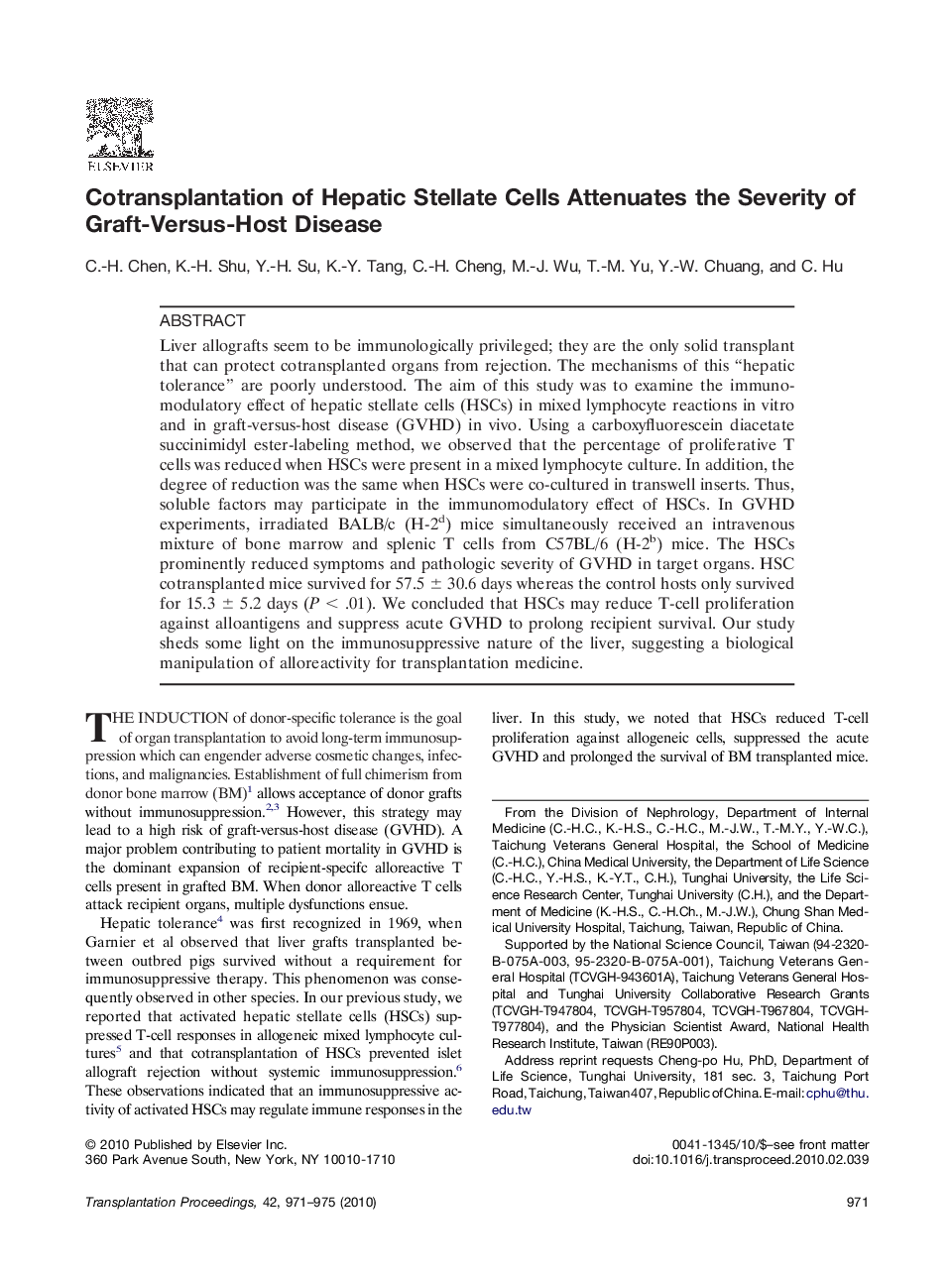| Article ID | Journal | Published Year | Pages | File Type |
|---|---|---|---|---|
| 4258177 | Transplantation Proceedings | 2010 | 5 Pages |
Abstract
Liver allografts seem to be immunologically privileged; they are the only solid transplant that can protect cotransplanted organs from rejection. The mechanisms of this “hepatic tolerance” are poorly understood. The aim of this study was to examine the immunomodulatory effect of hepatic stellate cells (HSCs) in mixed lymphocyte reactions in vitro and in graft-versus-host disease (GVHD) in vivo. Using a carboxyfluorescein diacetate succinimidyl ester-labeling method, we observed that the percentage of proliferative T cells was reduced when HSCs were present in a mixed lymphocyte culture. In addition, the degree of reduction was the same when HSCs were co-cultured in transwell inserts. Thus, soluble factors may participate in the immunomodulatory effect of HSCs. In GVHD experiments, irradiated BALB/c (H-2d) mice simultaneously received an intravenous mixture of bone marrow and splenic T cells from C57BL/6 (H-2b) mice. The HSCs prominently reduced symptoms and pathologic severity of GVHD in target organs. HSC cotransplanted mice survived for 57.5 ± 30.6 days whereas the control hosts only survived for 15.3 ± 5.2 days (P < .01). We concluded that HSCs may reduce T-cell proliferation against alloantigens and suppress acute GVHD to prolong recipient survival. Our study sheds some light on the immunosuppressive nature of the liver, suggesting a biological manipulation of alloreactivity for transplantation medicine.
Related Topics
Health Sciences
Medicine and Dentistry
Surgery
Authors
C.-H. Chen, K.-H. Shu, Y.-H. Su, K.-Y. Tang, C.-H. Cheng, M.-J. Wu, T.-M. Yu, Y.-W. Chuang, C. Hu,
